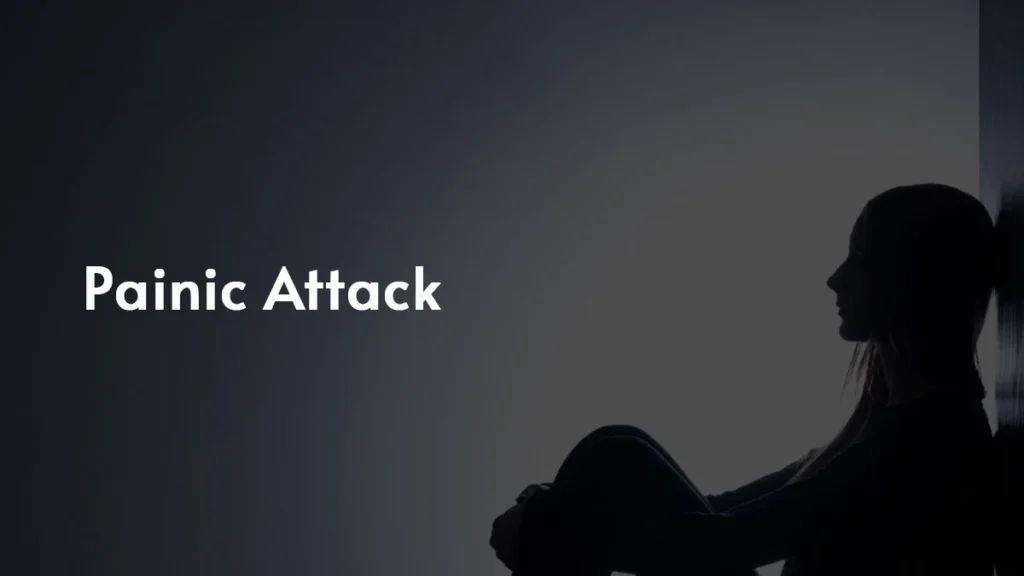
Understanding Panic Attacks: Causes, Symptoms, and Treatment
Panic attacks are a sudden surge of intense fear or discomfort that reaches its peak within minutes. Symptoms of a panic attack include rapid heartbeats, shortness of breath, muscle tension, or a sense of losing control. It can occur without warning, sometimes without a clear trigger, and may even happen during periods of relaxation or sleep. The duration of a Panic Attack Disorder can range from a few minutes to half an hour; however, the physical and emotional effects may persist for a few hours. Understanding panic attacks, including their causes, symptoms, and triggers, is crucial for both individuals who suffer from them and those around them.

Table of Contents
ToggleCauses of Panic Attacks
Understanding Panic Attack’s causes and triggers is essential for effective management. While the exact cause remains elusive, several factors can contribute to the onset of panic attacks, including:
- Stressful Life Events: Major life changes, such as a divorce, loss of a loved one, or financial difficulties, can trigger panic attacks.
- Phobias and Fears: Specific phobias or fears can lead to panic attacks when confronted with the source of anxiety.
- Social Anxiety: Fear of social situations or performance anxiety can lead to panic attacks in crowded places or during public speaking engagements.
- Brain Chemistry: Imbalances in neurotransmitters, such as serotonin and norepinephrine, can contribute to the development of panic attacks.
- Trauma and PTSD: Individuals who have experienced trauma or suffer from post-traumatic stress disorder (PTSD) may be more prone to panic attacks.
- Medical Conditions: Certain medical conditions, such as chronic pain or a serious illness, can act as triggers for panic attacks.
- Substance Abuse: Alcohol, drugs, and certain medications can trigger panic attacks, either as a direct effect or through withdrawal symptoms.
Symptoms of Panic Attack
While the specific experience can vary from person to person, common symptoms include:
- Strong feeling of fear or danger
- Chest pain or discomfort
- Shortness of breath
- Rapid heartbeat
- Fear of losing control or dying
- Trembling or shaking
- Numbness or tingling sensations.
- Dizziness
- Choking feeling
- Nausea
- Excessive sweating
Coping Strategies and Treatment
It’s essential to distinguish between panic attacks and general anxiety, as they involve different intensities and durations of symptoms. While anxiety can persist over a more extended period, panic attacks are sudden, intense episodes with symptoms peaking within minutes. Fortunately, several effective strategies can help individuals cope with and manage panic attacks:
- Relaxation Techniques: Practices such as deep breathing, progressive muscle relaxation, and mindfulness meditation can help alleviate anxiety and reduce the likelihood of panic attacks.
- Medication: Doctors may prescribe specific medications to manage symptoms, especially for individuals with frequent or severe panic attacks.
- Lifestyle Modifications: Adopting a healthy lifestyle, including regular exercise, sufficient sleep, and a balanced diet, can contribute to overall well-being and reduce the frequency of panic attacks.
- Support Groups: Connecting with others who have experienced similar struggles can provide valuable support and a sense of community.
Seek Professional Help
If someone experiences recurring panic attacks, it is recommended to seek assistance from Hale Clinics, one of the Best Multi Speciality Clinics in Mohali. They will conduct a thorough assessment and develop an appropriate treatment plan to provide you with the best treatment. At Hale Clinics, addressing the underlying causes of panic attacks is prioritized, and effective coping strategies are explored to meet the unique needs of each individual.
Conclusion
Choosing Hale Clinics guarantees access to superior care and a dedicated commitment to delivering the most effective treatment for panic attacks at the Best Panic Attack Clinics in Mohali available. By Understanding Panic Attack and it’s causes, individuals can take proactive measures to manage it effectively. Friends and family play a vital role in supporting individuals experiencing panic attacks. Educating oneself about its consequences, being non-judgmental, and offering a listening ear can make a significant difference. Encourage loved ones to seek professional help and participate in their treatment journey to create a supportive and understanding environment.
FAQs
Q1. What are the common causes and triggers of panic attacks?
Ans: Panic attacks can be triggered by various factors, including stressful life events, specific phobias, social anxiety, trauma, and substance abuse.
Q2. How can I distinguish between a panic attack and general anxiety?
Ans: While anxiety can persist over a more extended period, panic attacks are sudden, intense episodes with symptoms peaking within minutes.
Q3. What are the typical symptoms of panic attack disorder?
Ans: Common symptoms include a strong feeling of fear, chest pain, shortness of breath, rapid heartbeat, fear of losing control, trembling or shaking, dizziness, and excessive sweating.
Q4. What coping strategies can be employed to manage panic attacks?
Ans: Effective coping strategies include relaxation techniques such as deep breathing and mindfulness meditation, medication prescribed by doctors, lifestyle modifications, and participating in support groups.
Q5. Can panic attacks occur without a clear trigger?
Ans: Yes, panic attacks can occur without a clear trigger, sometimes even during periods of relaxation or sleep.
